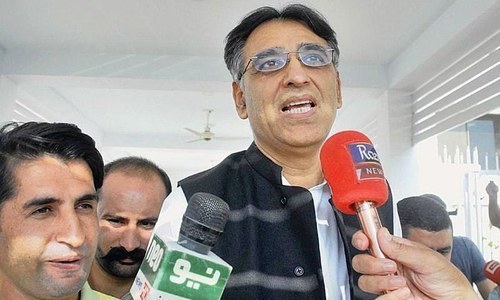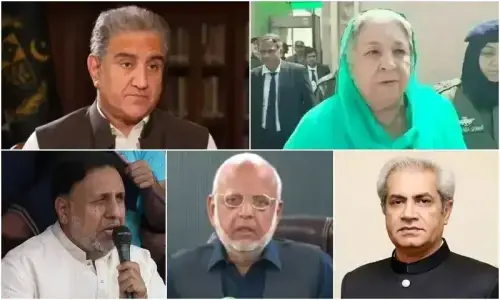PAKISTAN is no stranger to inflation, its corrosive effects on the economy and the well-being of the populace, but even by historical standards the country may be about to enter a period of acute inflation – and it is far from clear if the federal government is willing or able to do what is necessary to reduce the impact and duration of the seemingly inevitable inflation spike.
Take a look: Feeble rupee, IMF and rising inflation
Unhappily, political discourse on the economy still appears to be mired in the politics of denial and opposition. That needs to change urgently.
A recent projection by the IMF that inflation in Pakistan may touch 14 per cent by June next year ought to immediately focus the national political leadership’s on what can be done to mitigate what may be one of the worst-ever spells of inflation in the country. Worryingly, the federal government may have few options in the short term.
Indeed, much will depend on the straitjacket that the IMF imposes on the federal government. One of the likely demands of the IMF will be greater autonomy for the State Bank of Pakistan, which was made virtually an extension of the finance ministry under the last PML-N government.
That, combined with a likely demand for higher interest rates, could help dampen inflation in the medium term. But in the short term, the IMF could demand a further devaluation of the rupee and increases in gas and electricity prices – which will add to inflationary pressure.
If international oil prices rise or a similar exogenous shock buffets the Pakistani economy, the inflation rate could be higher still. For the PTI economic policymakers, the challenge will be to swiftly enact structural reforms in the first two years of the government’s term so as to position the economy to bounce back quickly from the upcoming inflation attack.
For the PTI’s political mavens, the challenge will be to curb the party leadership’s penchant for blaming political enemies because the cooperation of the opposition, particularly in the Senate, will be needed if reforms are to be successfully pushed through.
Therein lies a challenge for all sides. The combined opposition could choose to savour the political difficulties of the PTI or it could choose to do what is morally right and support the PTI in any plans that help limit inflation and return the economy to stable growth.
Runaway inflation will eat into the PTI’s political capital, but it would also attack the economic wellbeing of all Pakistanis, whatever political party they belong to. Surely, the democratic order in the country needs a political leadership that is willing to lend a hand across the political aisle to help fight an imminent threat to national security in the shape of high inflation.
Perhaps Prime Minister Imran Khan and Finance Minister Asad Umar can lead the way on ratcheting down the political temperature and turning the nation’s focus on an economic reforms agenda.
Published in Dawn, October 16th, 2018



































